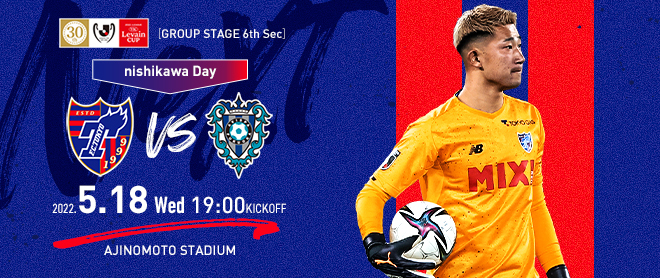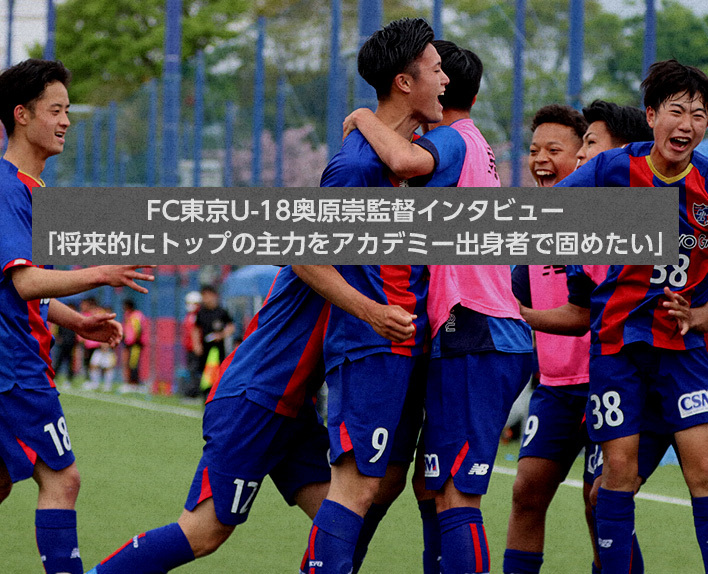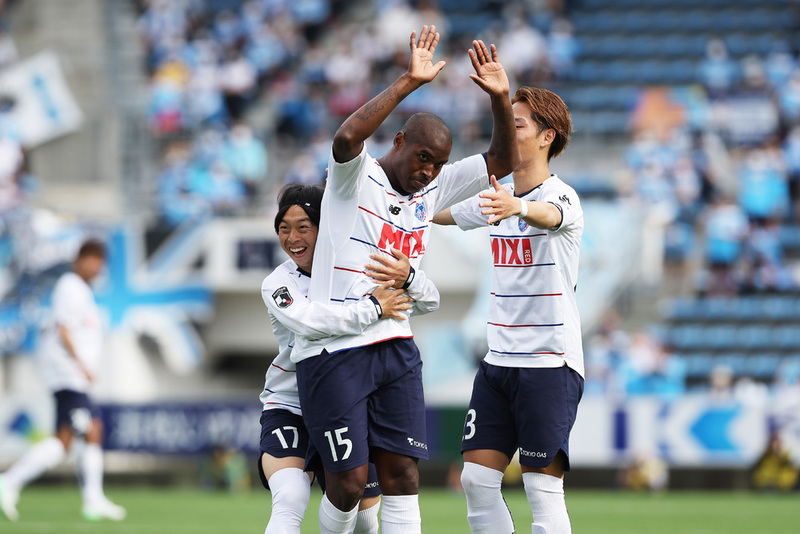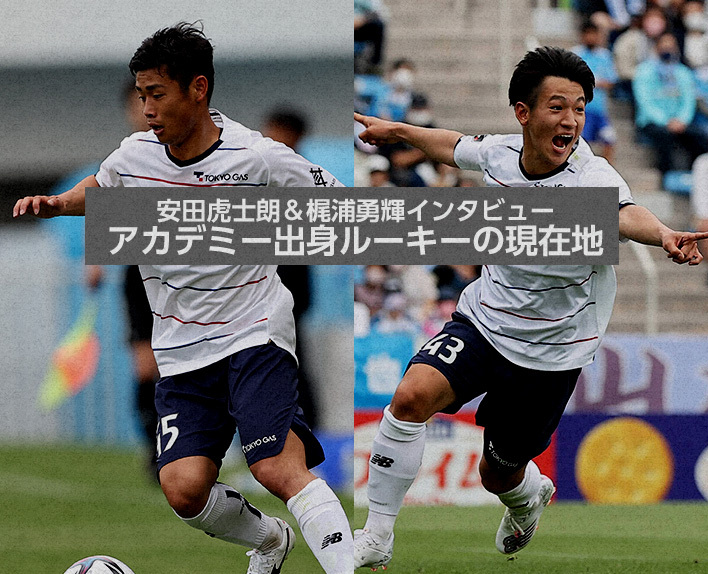F.C.Tokyo U-18 Takashi Okuhara Coach Interview
"In the future, we want to strengthen the first team with academy graduates."
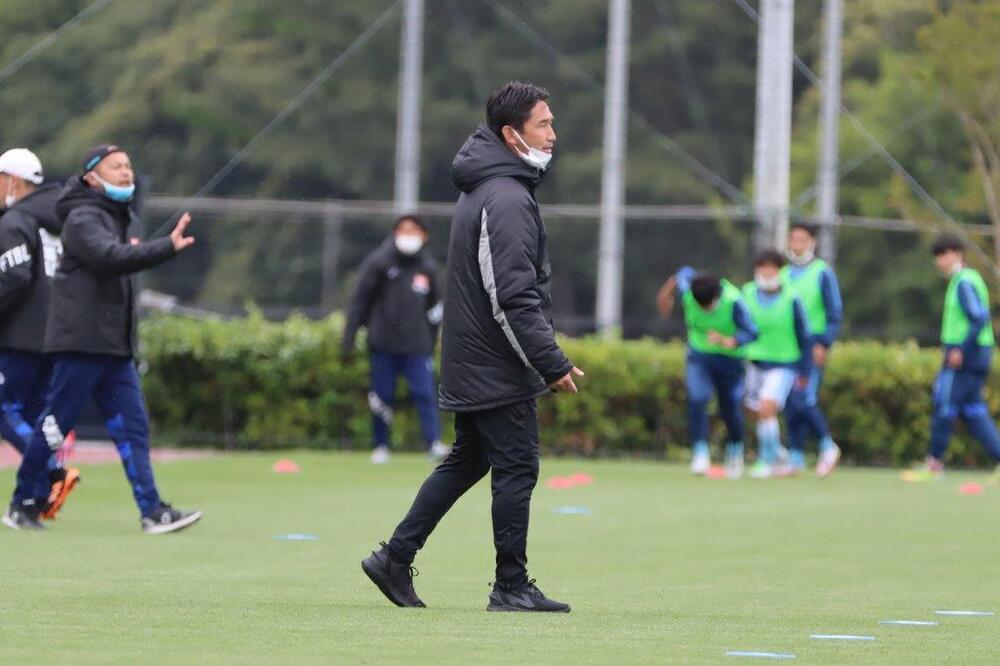
In the J League YBC Levain Cup, Kojiro YASUDA, who was promoted from U-18 this season, was appointed and Yuki KAJIURA scored a goal. In addition, academy graduates such as Renta HIGASHI and Naoki KUMATA, who are registered as 2nd team players, are also gaining playing opportunities, and the performance of academy graduates in the top team is becoming more noticeable than ever before. This time, we will hear from Takashi OKUHARA, who served as the Academy Management Director and Academy Director for 5 years until last season, and became the coach of U-18 this year, about the current state of U-18 and the current situation and challenges of the academy, and what kind of presence the players who leave the academy should be at FC Tokyo from various perspectives.
Q: How do you feel about returning to coaching after a six-season hiatus since leading U-15 Fukagawa in the 2016 season, Mr. Takashi Okuhara?
A, I have been working as the Academy Director for 5 years, so I deeply understand the positioning of each team within the club and the fact that the field is supported by various things. Based on that, I am doing my job as a coach with a much stronger sense of how much weight the coach should carry on the field than before.
Q, the role of the coach itself has changed quite a bit over these 6 years.
A, yes. It is becoming more pronounced that the entire club is consistently aligning with football, more so than when I was in Fukagawa. Each club in the J-League is starting to show their own colors, and I think it's about how I can be involved in growing as an individual while adhering to the club's philosophy. It's exciting to be able to try new things.
Q, as the former coach of FC Tokyo who wore the number 10, I think you have a good understanding of the club's mindset. How do you feel about serving as the coach of the U-18 team?
A, I think there are things to inherit and things to discard. I believe that there is a meaning in being able to understand that and have the courage to discard them or take on new things. While thinking that there may be times when I have to let go of things that I have cherished so much depending on the situation, I also feel that because I know the history from the past, I am able to do such things.
Q, how do you feel about the performance of U-18 in the Premier League this season? They have had a very strong start in the early stages.
A, of course we seek results, but the most important thing is to express how much we have been able to encourage the players' development on the field. Since January, we have been working on various things. In that context, we have been saying to the players, 'Let's regain a strong U-18 team.' They are players who entered the team admiring the era when the current top players were active in the U-18 that won the Premier League during their junior and U-15 years. However, the situation has changed in recent years, and we are trying to regain that status, aiming to become a team that U-15 and school players can look up to as the top category of the academy. I believe the players are doing very well.
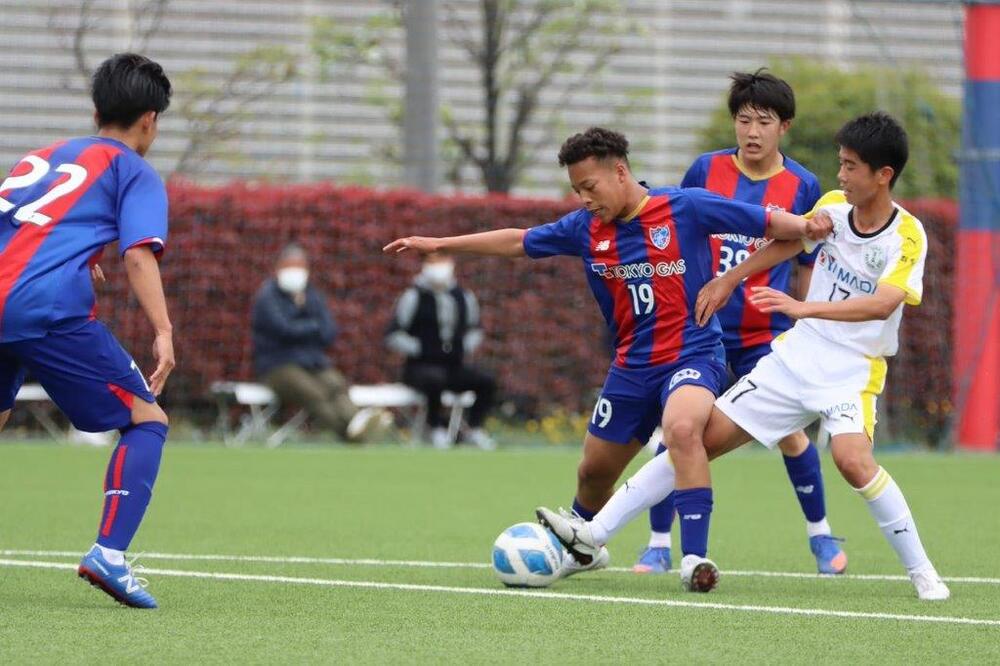
Q: Did becoming a coach from the position of a director bring about any changes in your approach to high school players?
When I was watching from a slightly distant position, I had ideals like "If I do this more," but there are difficulties when actually getting involved. However, honestly, I thought that it would be difficult to improve technically in the youth age group, and it would take time to change the mental aspect. However, as I interact with the players, there is a sense of response that is changing more than I expected.
Q, specifically, what parts are starting to change?
In the midst of Albert Pobor, the coach, saying "soccer that loves the ball," if he says "let's increase ball possession rate," it is necessary to acquire the skills that support that. When I was watching from the outside last year, I had a sense of "training technically, how far can I go?" but I feel that "if you really build it up carefully, you can acquire the necessary skills to become a professional even at this age."
<Kumada's goal, connected from the goalkeeper>
Q, by the way, the U-18 this year is energetic, isn't it?
A, what I first said was "It's right to cheer up and play soccer", "It's not good to be slanted or try to be cool", so I started with the idea of "It's a team sport, so let's cooperate with our teammates". As an improvement to the parts that seemed to be crushed by the atmosphere around me, I started with "Let's speak loudly" and "Let's greet each other".
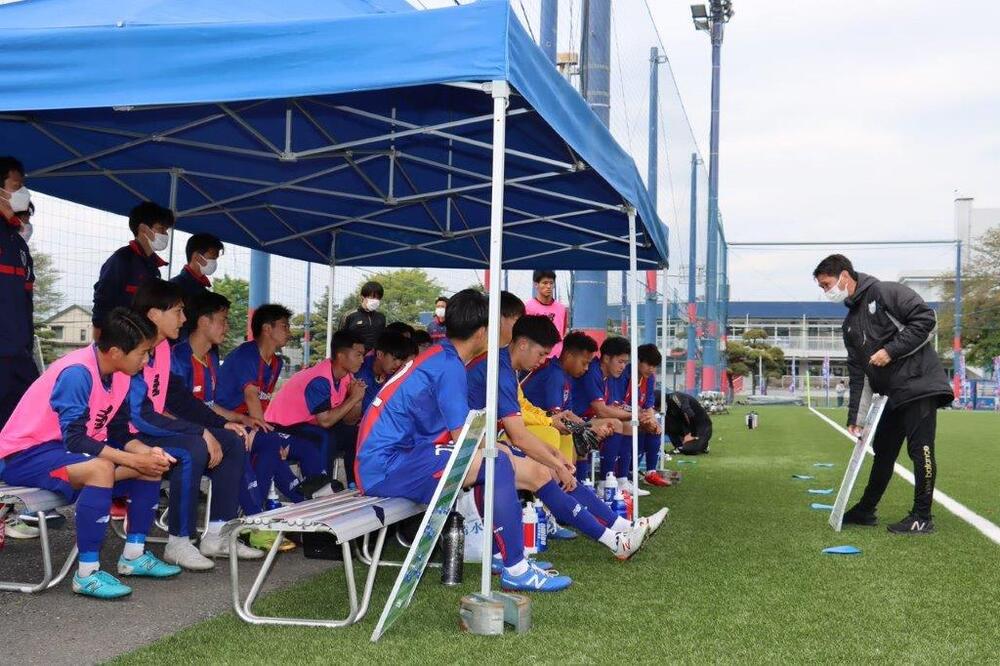
Q: Currently, there are 7 U-18 players registered with the top team. In the Levain Cup, players Renta HIGASHI and Naoki KUMATA have also played in matches. How is the current collaboration between the top team and the academy?
A, Coach Albert came and because he is a foreign coach, I had some concerns about communication, but first of all, he called the players to camp and he values the academy a lot, so we are able to share various things. Specifically, we had a meeting with Coach Takayoshi AMMA and Coach Hiroyuki SHIRAI and me and Coach Albert, comparing the footage of when Tokyo participated in the Levain Cup and when they participated in the Premier League with the U-18 team. There are some differences in the defensive style between U-18 and the top team, so I was able to learn from that and we are able to work closely together, not only the players but also the U-18 staff, learning and growing.
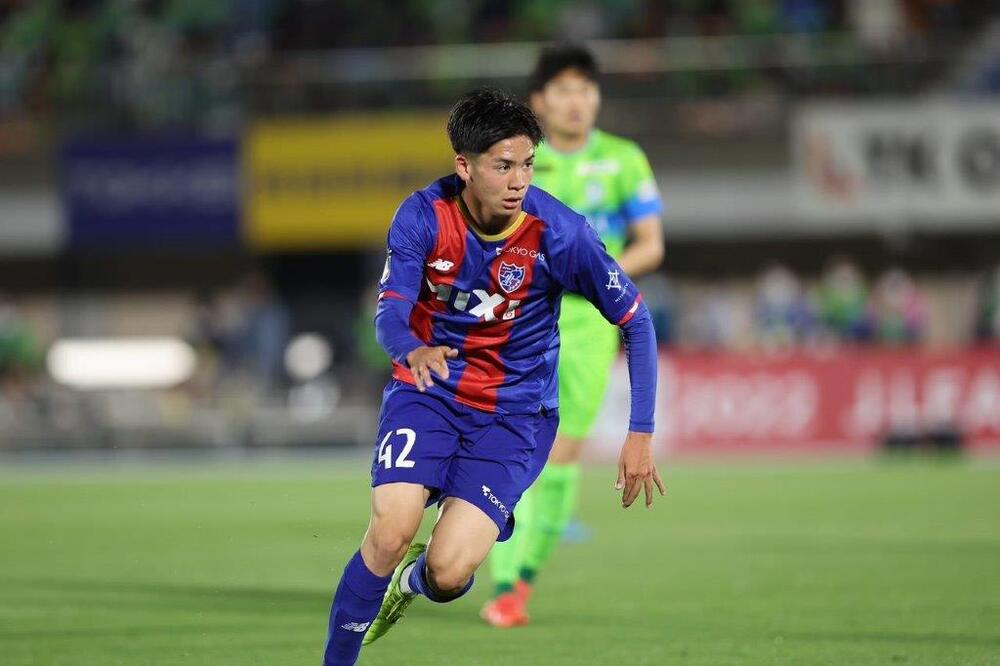
Q: How do you feel about the stimulation that players who participate in the activities of the top team receive?
A, that area is also a difficult place, and although it improves for a moment (laughs), misunderstandings also come in reverse, so "Oh, I'm losing humility." Still, it is appreciated as a stimulating material for us. Young players are shaken in various ways, so we have to work on that (laughs).
Q, it's fun to work on that point (laughs).
A, yes. I become complacent immediately (laughs).
Q: Is there a possibility to talk to the current academy players about the personal growth of players who have moved up from the academy to the top team?
A, "We talk about players like this, who had this kind of approach," or "This player is not only skilled, but also had this kind of personality." When we actually mention names, it feels more familiar when they participate in top-level training, and because I have interacted with various players myself, I can talk about how they behaved when they were 15 years old or 18 years old.
Q, Sodai Hasukawa, who is at the top, also left an impression of paving the way for the professional path with his outstanding human qualities.
A, the greatness is precisely where his strength lies. Even during his time in U-15 Fukagawa, he only got playing opportunities in his third year, and it was similar in U-18 and Meiji University. However, he embodies the idea that if you humbly build up various things, there is something to be gained at the end of that category. In Tokyo, he has inherited a mindset similar to that of Yoshimoto (Kazunori YOSHIMOTO), and both Sōdai and Okaniwa (Shuto OKANIWA) have been engaging in activities that carry on that legacy. At the time, I was wondering, 'Is this really okay?' But considering that they are now slightly 'stuck' at the top, it may mean that we were still lacking in some areas, and I hope to incorporate even a little of the reasons for that into the current environment. I have come to understand that if we don't reach further beyond what I felt was 'the limit' for them back then, it will be quite difficult for high school and university graduates to become core members of the top team. While the number of academy graduates promoted to the top has increased, there are still few representatives and players going abroad, so I believe we need to tackle these issues head-on.
Q: In the recent Levain Cup match against Júbilo Iwata, 9 members of the team were academy graduates. How does Coach Okuhara envision their role in the first team going forward?
A, one aspect is the cost, and when considering where to allocate the budget to continue competing at the top of J1, we will indeed invest in key players, including foreign players. However, for the backup positions, we want to solidify the team with academy players who will become key or substitute players in the future. I believe we currently have enough talent for that, and I feel that is something we must focus on. Another aspect is how to create a training atmosphere throughout the year, as various situations arise at the Kodaira training ground depending on wins and losses. Whether we are on a losing streak or a winning streak, I have been thinking lately that it is the mission of the academy players to create an atmosphere where training can be effectively conducted even in difficult situations.
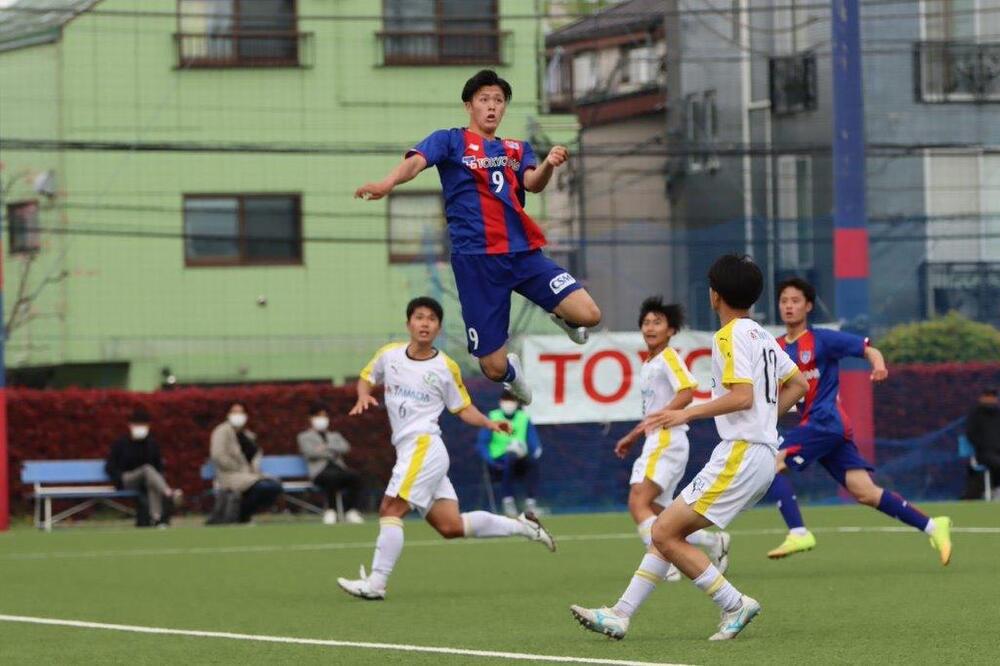
Q, was there any reason to think so?
When I think back to the quality of training in the era when there were few academy players and no results were being achieved, just having Mr. Yoshimoto there made sure that the atmosphere never dropped below a minimum level. I think it's really important to develop academy players who can do that. I have also experienced difficult times in the first team, and there are times when the atmosphere cannot be improved no matter what, but I think it's still important for the players who have come up from the academy to be able to make a breakthrough at that time.
Q, Mr. Yoshimoto is great, isn't he?
A, I intentionally increase the opportunities to talk with Mr. Yoshimoto. There are still many "pretend" parts, but I feel that I am starting to understand the true love for the club and genuine humility little by little.
Q: By the way, Coach Okuhara also calls him "Yoshimoto-san," right? (laughs).
A. Yes. Since I was in a management position, including the coaching staff, I address everyone with "san" in a professional setting (laughs).
Text by Takashi Tsuchiya (Football Writer)
